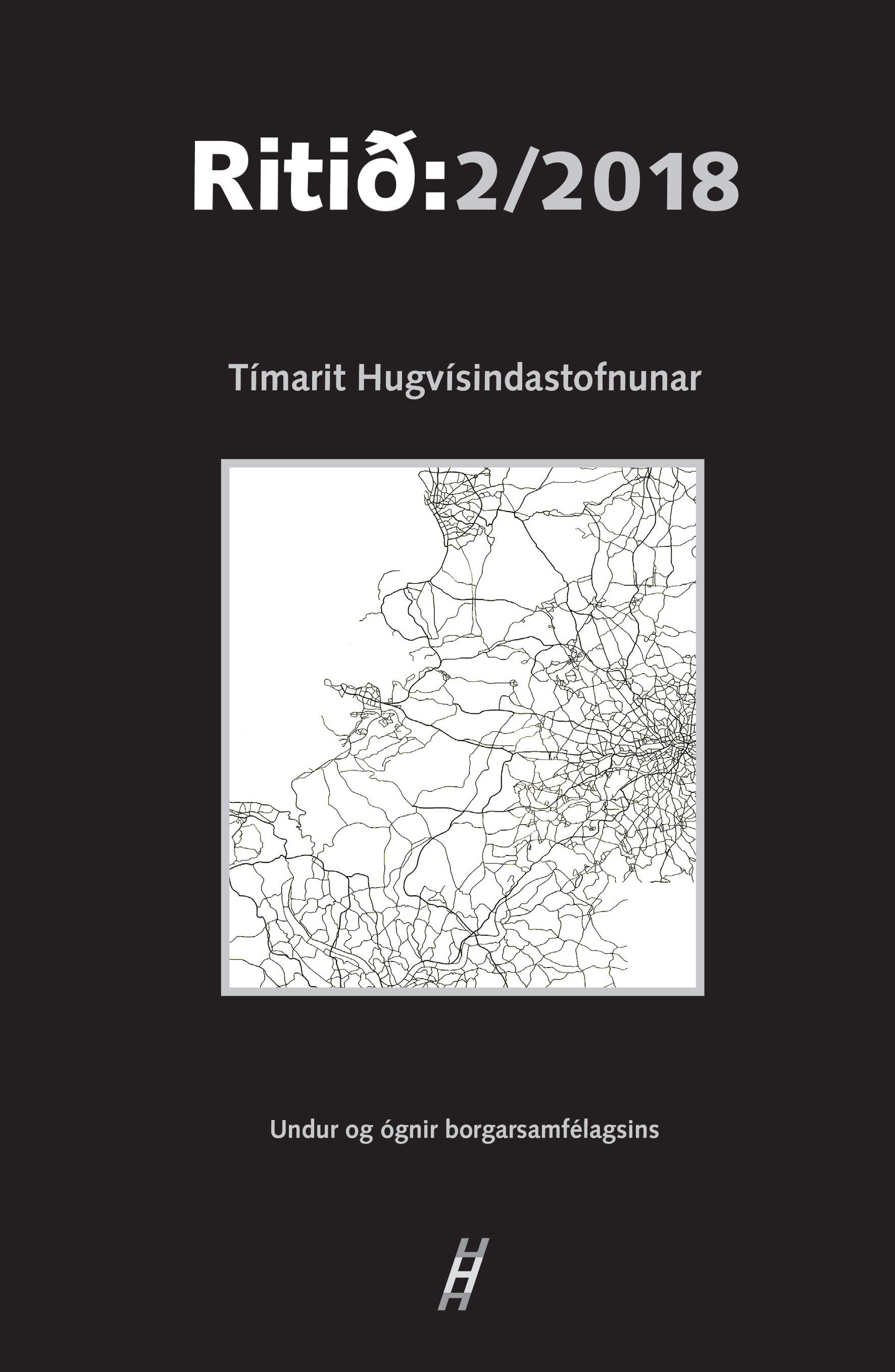Hlið við hlið. Tapað-fundið í framandi borgum
Abstract
Grein þessi fjallar um skynjun borgarheimsins, birtingarmyndir hans í bókmenntum og æviskrifum, og um borgina sem stað framandleika og ferðalaga í ýmsum skilningi, m.a. í heimsmynd hvers og eins. Borgir einkennast af þéttleika og innri tengslum en gáttir borgarinnar snúa líka út á við og tengja hana m.a. öðrum borgum. Hugað er að íslenskum tengslum Kaupmannahafnar og Reykjavíkur, en frá íslensku borginni er haldið aftur út í heim og staldrað við í Berlín og París í kompaníi við Walter Benjamin, en einnig villst með Franz Kafka um staði sem kunna að vera Prag og New York. Spurt er hvort hægt sé að stofna til náinna kynna við borgir og til umræðu koma borgarleiðsögn, ævikort og ferðaleikhús – og listin að glata og finna.
https://doi.org/10.33112/ritid.18.2.2
This essay concerns itself with perceptions of the urban sphere, with its manifestations in literature and life writing, and with the city as a place of strangeness and travel in various senses, including the ways in which it pertains to the individual world view. Cities are places of density and internal connections, but their gates also open out and connect with other places, and increasingly other cities. Following a discussion of the Icelandic links between Copenhagen and Reykjavík, and the slow emergence of the latter as a „literary capital“, the course is set for foreign cities, including Berlin and Paris in the company of Walter Benjamin, and the experience of getting lost with Franz Kafka in places that may be Prague and New York. In attempting to answer the question whether it is possible to become intimate with cities, we have recourse to city guides, life maps, a touring theatre – and the art of losing and finding.

